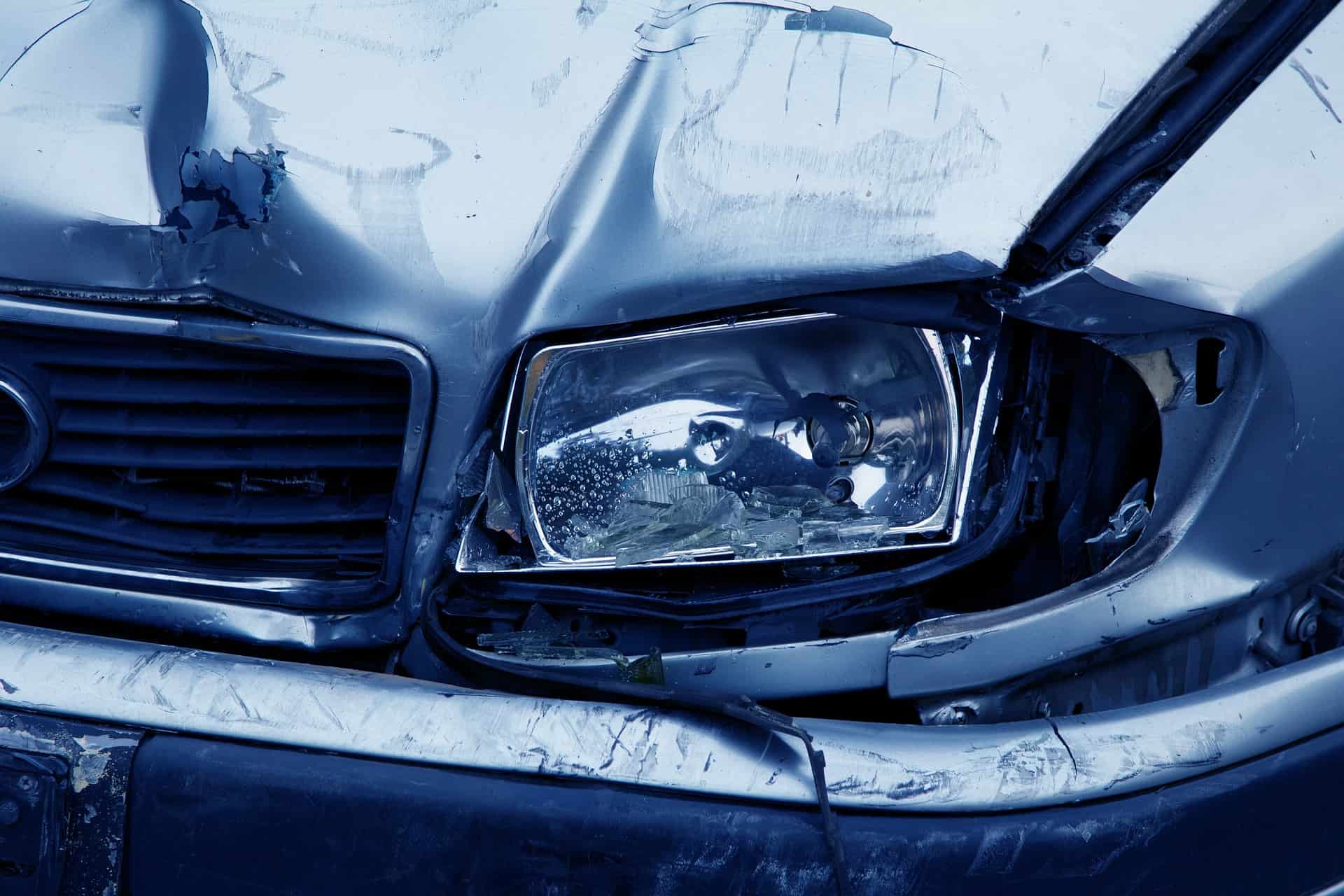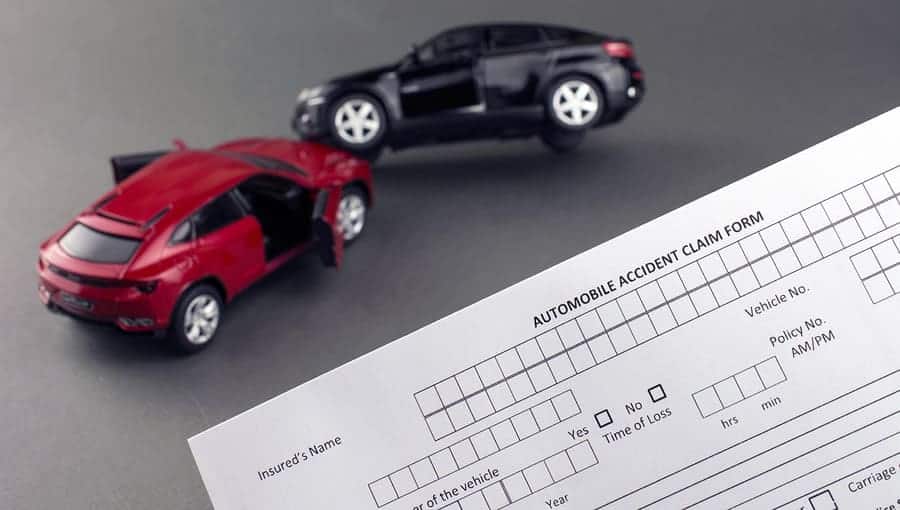Wisconsin Car Accident Settlement Guide

Wisconsin Auto Accident Claims
Wisconsin is a beautiful state with much to offer visitors and residents. But with over 112,000 miles of public roadways in “America’s Dairyland”, it’s no surprise that car accidents are a common occurrence. According to the Wisconsin Department of Transportation, Wisconsin had over 120,000 car accidents, resulting in over 595 deaths and thousands of people injured in 2021 alone.
If you’re ever involved in a car accident in Wisconsin, it’s important to know your rights and how to ensure you are duly compensated for your car accident injuries. This article discusses pertinent auto accident laws in Wisconsin and helpful tips that will be helpful during a car accident settlement in Wisconsin.

- How Much Is Your Car Accident Settlement Worth?
Find out the maximum compensation you could receive.
- How Much Is My Car Accident Settlement Worth?
In 2019, there were 145,288 total crashes in Wisconsin. Of these, 28,791 resulted in 39,723 people suffering injuries. Another 511 crashes resulted in 551 deaths. More than 1/3 of these crashes (57,601) occurred on urban city streets. 7,129 occurred on rural city streets and 23,455 on rural state highways.
What to Do After a Car Accident in Wisconsin to Ensure Maximum Compensation
If you are involved in a car accident in Wisconsin, there are a few important things you should do:
- Stay at the scene of the accident. This is important for several reasons. First, it lets you exchange information with the other driver(s) involved in the accident. Second, it allows you to call the police and file a report. Third, it allows you to assess the damage to your vehicle and to seek medical attention if necessary.
- Call the police and file a report. The police report will document the details of the accident, including the names and addresses of the drivers involved, the license plate numbers of the vehicles involved, and the location of the accident. The police report will also be important if you need to file a claim with your insurance company or if you need to file a lawsuit.
- Seek medical attention if you are injured. Even if you don’t think you are injured, it is important to see a doctor as soon as possible after a car accident. This is because some injuries, such as whiplash, may not be immediately apparent.
- Exchange information with the other driver(s). You should exchange the following information with the other driver(s):
- Name and address
- Driver’s license number
- Vehicle registration number
- Insurance information
- Take pictures of the damage to your vehicle and the accident scene. This will help you document the accident and may be helpful if you need to file a claim with your insurance company or if you need to file a lawsuit.
- Contact your insurance company. You should contact your insurance company as soon as possible after a car accident. Your insurance company will help you file a claim and will work to get you the compensation you deserve.
Types of Damages in Wisconsin Car Accident Cases
In Wisconsin, there are three main types of damages that car accident victims can recover: economic, non-economic, and punitive.
- Economic damages are the costs that can be easily proven, such as medical bills, lost wages, and property damage.
- Non-economic damages are more difficult to prove and include things like pain and suffering, emotional distress, and loss of enjoyment of life.
- Punitive damages are a form of punishment that a judge can award to the victim if the at-fault party’s behavior was particularly reckless or malicious. Punitive damages are not awarded often, and there is a cap on the amount that can be awarded. In Wisconsin, the cap is either $200,000 or twice the amount of the economic and non-economic damages.
Wisconsin Car Accident Settlement Examples
- A young woman who sustained a traumatic brain injury in a car accident caused by a truck driver was awarded $2.5 million in settlement. The woman was driving home from work in Milwaukee when she was hit by a semi-truck that had crossed the center line. The woman suffered a severe traumatic brain injury, which left her with permanent disabilities. She was unable to work and required extensive medical care. The jury found the truck driver to be 100% at fault for the accident and awarded the woman $2.5 million in damages.
- The family of a man killed in a car accident caused by a moving truck was awarded $1 million in wrongful death settlement. The man was driving his wife and two children to the grocery store in Green Bay when he was hit by the truck that had lost control on an icy road. The man was killed instantly, and his family was devastated. The jury found the semi-truck driver to be 80% at fault for the accident and awarded the family $1 million in damages.
- A cyclist was awarded $200,000 after being hit by a car while riding his bike in Eau Claire. The cyclist suffered a broken arm and a concussion.
These are just a few examples of car accident settlements in Wisconsin. Each case is peculiar; the amount you will receive depends on the specific facts of your case. However, the above examples give you an idea of the payout amount for different injuries.

Wisconsin Car Accident Laws
The state of Wisconsin has a number of laws that govern car accidents. These laws include:
- The statute of limitations. This is the time limit within which you must file a claim for damages after a car accident. In Wisconsin, the statute of limitations for car accidents is three years.
- The comparative negligence rule. This rule states that if you are partially at fault for a car accident, you may still be able to recover damages, but your percentage of fault will reduce the amount of your damages. For example, if you are found to be 20% at fault for a car accident, your damages will be reduced by 20%.
- The at-fault rule. Wisconsin is an at-fault state, meaning the driver who causes a car accident is responsible for paying for the damages. This is why most drivers carry insurance, so their insurance company can pay the settlement on their behalf.
Let’s Dive a little deeper into these laws:
Wisconsin is an “At-Fault” State
Wisconsin follows an at-fault system, meaning that the driver responsible for the car crash is also the person who must pay for any damages. This is why most drivers carry insurance – the insurance company pays out a car accident settlement so the driver isn’t personally liable for it. But there are other factors to consider when it comes to how much a Wisconsin car accident settlement will be in the end.
Comparative Negligence in Wisconsin Auto Accident Cases
Wisconsin, like some other states, follows a modified comparative negligence standard. Wisconsin Statutes Section 895.045 details how liability affects the amount that a person can collect in damages if they share fault in an accident. Under the statute you can recover damages for your injuries and losses from the crash. But if you are more than 51% at-fault for the car accident, you are barred from collecting. If you are less than 51% at-fault the court may decide to lower your total payout. The reduction is usually equal to your percentage of fault for the accident.
For example, suppose you get into a crash on I-39 in Wisconsin. You suffer a serious whiplash injury as well as a concussion in the crash. The insurance company refuses to settle. You file a lawsuit against the other driver and his insurance company. At trial, you prove that the other party was negligent. The jury determines that your total damages are $100,000. But the jury also finds that you were 30% at-fault for the car accident. You will receive $70,000 ($100,000 – 30%).
Wisconsin Auto Accident Laws Statute of Limitations
In the state of Wisconsin, you have a specific amount of time in which you can file a lawsuit. A statute of limitations dictates what that timeline is. The type of claim or suit that you are filing affects which statute of limitations is applicable.
Wisconsin Statutes Section 893.54 gives accident victims three years to file a lawsuit to collect for personal injuries. The statute of limitations begins at the date of the accident. The timeline for wrongful death claims is also three years. But the 3-year period begins on the day that the victim died. A wrongful death lawsuit is typically brought up by the survivors or estate of the deceased.
If you are seeking compensation for property damage, Wisconsin Statutes Section 893.52 allows three years to file a suit from the date of the accident.
Keep in mind that these limitations apply to filing lawsuits, not insurance claims. That said, it is still wise not to wait too long to file a claim and establish your demands. If the claims process with the insurance company exceeds the window of time permitted by the statute of limitations, your leverage diminishes. This is because the insurance companies know that you will no longer be able to sue them to get a larger settlement.
Wisconsin’s Minimum Insurance Liability Coverage
In Wisconsin, you must have at least the following minimum insurance liability coverage:
- $25,000 per person for bodily injury or death
- $10,000 per accident for property damage
- $50,000 total for bodily injury or death
If you are found to be more than 51% at-fault in a car accident, you will not be able to recover damages from the other driver’s insurance company. However, the insurance adjuster will still make a fault determination in order to calculate an adequate settlement.
Wisconsin also requires uninsured motorist (UM) coverage. UM coverage protects you if you are injured in a car accident by a driver who does not have enough insurance. It also covers you in hit-and-run accidents. You must have at least $25,000 per person/$50,000 per accident in UM coverage.
If you are at-fault for a car accident, your liability insurance will not cover your damages. You will need to rely on other types of insurance, such as collision coverage, to reimburse you for fixing your car.
Find out the maximum compensation you could receive.
Penalties for Driving Without Car Insurance in Wisconsin
If you choose to drive without insurance in the state of Wisconsin, you are risking large fines and punishment. If caught, you may be fined up to $500 under Wisconsin Statutes Section 344.65. The Wisconsin DMV may also suspend your driver’s license and/or registration.
However, if you are facing these penalties but can prove to the court that you did have insurance, the punishment will be waived. If you continue to drive without insurance, the penalties could increase. Should you cause an accident while driving without insurance, you will be personally liable to pay for any and all damages.
Reporting Car Accidents in Wisconsin
If you are involved in a car accident in Wisconsin, you may be required to report it to the police. The reporting requirements vary depending on the circumstances of the accident.
You must report an accident if:
- Anyone is injured or killed.
- More than $200 in damage is done to state or government property.
- More than $1,000 in property damage is done to any one person.
If you are involved in an accident that meets any of these criteria, you must report it to the police within 10 days. You can do this by calling the police or by filing a report online.
If you do not report an accident that is required to be reported, you may be subject to a fine.
How to Recover Damages in a Wisconsin Car Accident
There are three main ways to recover damages after a car accident in Wisconsin:
- File a claim with your own insurance company. Your insurance company will then work with the at-fault driver’s insurance company to negotiate a settlement. If you are found to be at fault, your insurance company will pay you for any damages.
- File a claim directly with the at-fault driver’s insurance company. You can do this by sending a demand letter, which is a formal document that outlines your damages and your request for a settlement. The insurance company may offer you a lower settlement than you are asking for, but you should not accept it if you believe it is unfair.
- File a lawsuit. This is a last resort, but it may be necessary if you cannot settle with the insurance company. A lawsuit can be lengthy and expensive, but it can also lead to a higher settlement.
If you are not sure how to proceed, you should consult with an attorney. An attorney can help you understand your legal rights and options and can represent you in negotiations or court proceedings.
Get An Estimate of Your Claim’s Worth
If you or someone you know was injured in a car accident in Wisconsin, you may be eligible for compensation. Our free Car Accident Settlement Calculator can help you estimate the value of your case.
If you’ve been injured in a car accident in Wisconsin, there are options. By arming yourself with knowledge, you can ensure that you maximize the amount your Wisconsin car accident settlement is worth.

Related Articles
Whiplash Payout Scale for Grades 0-4
Whiplash is common in car accidents, especially rear-end collisions. Your head and neck are forcefully jerked back and forward by the rapid acceleration-deceleration combination, causing injury to the head, neck, and shoulders. Each auto accident is...
How Long Does a Car Accident Settlement Take?
Involvement in a traffic collision creates a difficult situation, which can be made worse by injuries and property damage. You may be legally entitled to monetary compensation. How long does a car accident settlement take? The answer is different for everyone, but...
How To Adjust to the Traffic and Transportation Culture of a New Area
Even within the same country, transportation cultures can be drastically different. For instance, in New York, the public transportation system is a lifeline for many residents, with the subway being the primary mode of transportation. The city's layout encourages...
The Safety, Pros, and Cons of Different Methods of Transit
There are pros and cons for the different forms of transportation people use every day. The choice of how to get to work or school, run errands, or take longer trips often depends on what modes are available. In densely populated cities, bikes, walking, and public...
How Smart Infrastructure Will Improve and Complicate Public Safety
The American Society of Civil Engineers explains that smart infrastructure uses sensors, cameras, and other connected devices to collect information that helps provide better public services. It works in security, traffic, public transportation, utilities, air...
How To Rethink Your Approach to Hobbies in Light of an Injury
Hobbies are incredibly important for your health and your quality of life. They reduce your stress levels and fight off anxiety and depression by allowing your brain to focus on something you enjoy. You can use hobbies to connect with others, get outside, and get...
Can Exercising Negatively Affect a Car Accident Settlement?
Exercise is a daily part of life for many people. Some individuals work out to stay fit and improve their mobility while others enjoy the mental health benefits of running, swimming, and participating in other forms of exercise. However, after a car accident, it can...
How To Identify Dangerous Driver Behavior in a Taxi or Rideshare
You’ve most likely taken a taxi or rideshare from or to the airport, an event, or just to a friend's house. As integral tools in modern life, they offer convenience, efficiency, and, in many cases, a cost-effective alternative to owning a car. However, like any other...
How New Technologies May Pose New and Unique Distracted Driving Challenges
Distracted driving is one of the most common causes of accidents. The National Highway Transportation Safety Administration (NHTSA) counted 3,522 fatalities in 2021 due to distracted driving. Distracted driving is usually associated with cell phones, but the Centers...
